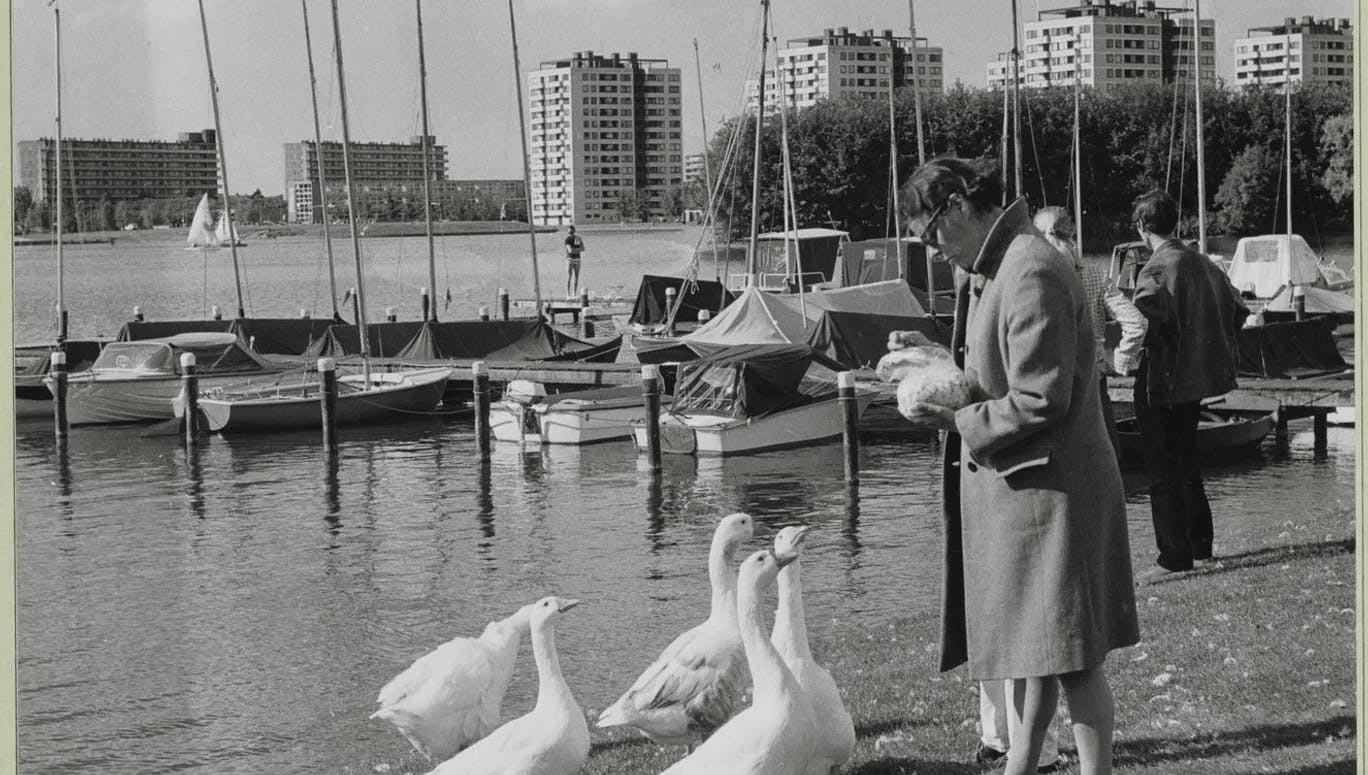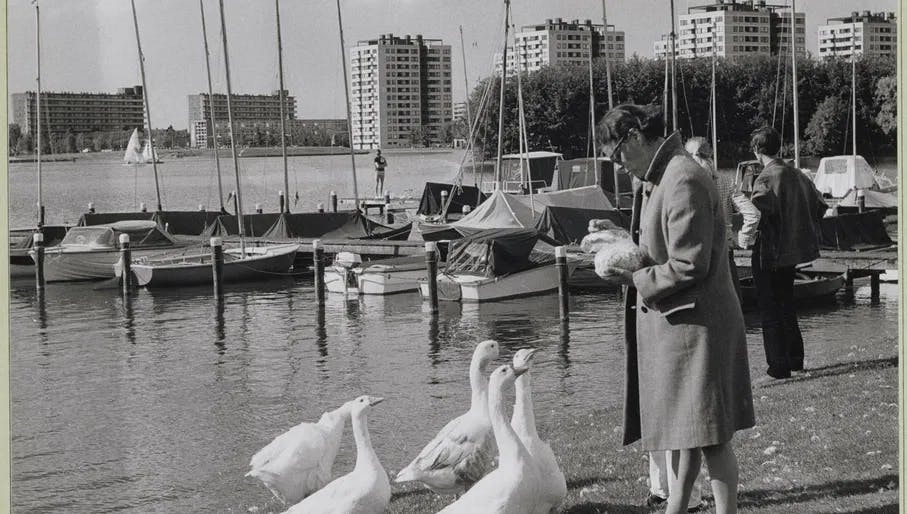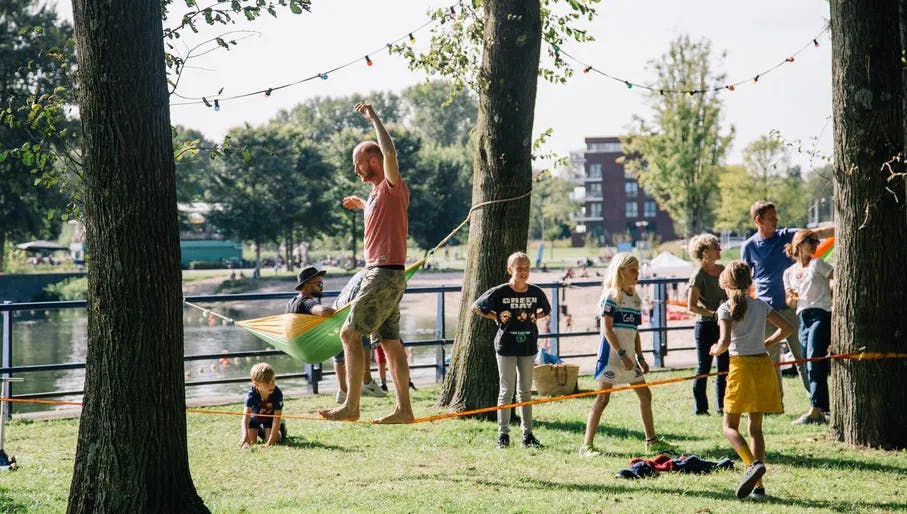
Nature and active in Nieuw-West
1 April 2025


For centuries, the area that is now Nieuw West (including Geuzenveld-Slotermeer) consisted only of historical villages, boggy polder landscapes and farmland. The ancient settlement of Sloten was first mentioned in texts as early as 1063, making it older than the Dutch capital itself. At the beginning of the 20th century, Amsterdam faced a severe housing shortage as more workers were attracted to the city’s rapidly developing industry. Planners began to expand West, and in the early 1920s, various peripheral municipalities were annexed into the ever-growing sprawl. Sloten, for example, became part of Amsterdam in 1921.
Architect and urban planner Cornelis van Eesteren played an essential role in realising these expansion districts, now known as the Western Garden Cities. The developments that make up present-day Nieuw-West were created mainly after the Second World War to give residents more light, air, and space. This fascinating era of urban planning is told in full at the area's flagship Van Eesteren Museum.

With the vast Sloterplas Lake and beach at its centre, Nieuw West is one of Amsterdam’s greenest and most tranquil neighbourhoods. There are countless opportunities to get outdoors and active, from watersports, sailing and jogging routes to beautiful spacious parks hosting various festivals and outdoor events throughout the year.
But it's not all about the quiet life at this end of town. Venues like the Meervaart Theatre, De Appel and the Van Eesteren Museum are essential cultural spaces, whilst RADION hosts everything from photo exhibitions to art fairs and booming techno nights. Dotted amongst the residential enclaves and former business parks, repurposed structures bring fresh innovation and social soul to the area, such as Lola Luid, a cultural incubator housed in a former school.